“Napakaganda ng sulagad system revival. Dahil bukod sa [pagbigay ng] pagkain, nakakatulong ito upang mapangalagaan ang kalikasan at maibalik ang sigla ng lupa (The sulagad system revival is a wonderful initiative because, aside from its provision of food for the community, the practice of the sulagad system helps conserve and protect the environment as well as bring back the fertility of the soil).”
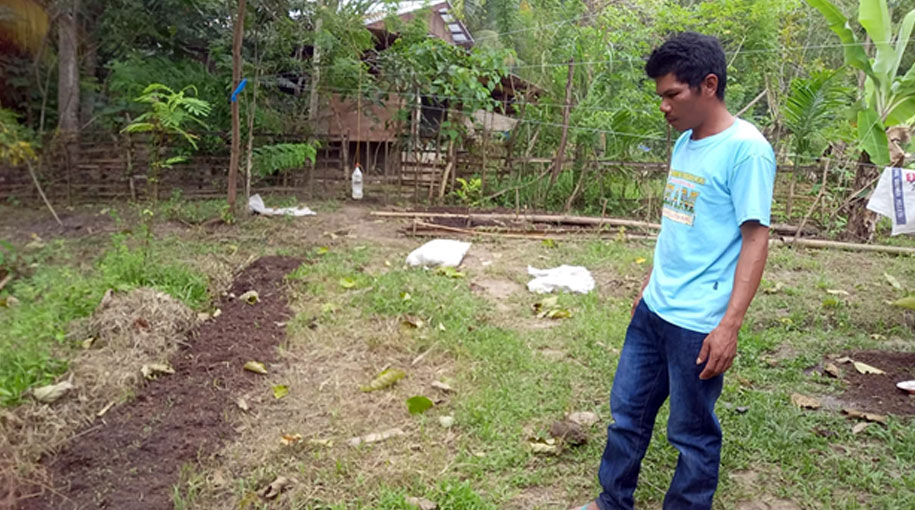
Jerry Datuwata, Lambangian Peoples Organization (LPO) project implementer of the sulagad system revitalization, stressed the benefits of the said initiative during Tebtebba’s visit to sitio Benuan, barangay Kuya, South Upi, Maguindanao, Philippines on 16 to 21 August 2022.
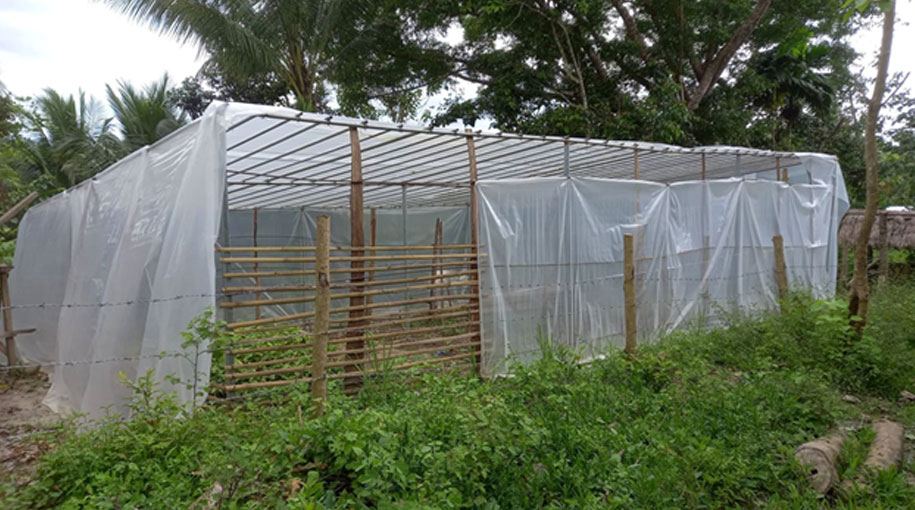
An age-old indigenous agricultural practice among the Teduray and Lambangian people of Mindanao in the southern part of the country, the sulagad system is a form of agroforestry, specifically that of silvopasture. It combines the cultivation of various kinds of trees—forest trees and fruit-bearing trees—and provides spaces for short-term crops including root crops, green leafy vegetables, fruit vegetables, legumes, and corn, among others. The agricultural system also integrates the presence of animals—livestock, carabaos, and horses—into the farm which, then, contributes and sustains food security in the area. The system also includes hunting animals and gathering wild plants.
Hence, the sulagad system maintains the naturally high biodiversity in the land, nourishing the area’s existing ecosystem as it supports the use of natural fertilizers, specifically compost and animal manure, and natural pesticides including herbs that act as pest blockers or deterrents.
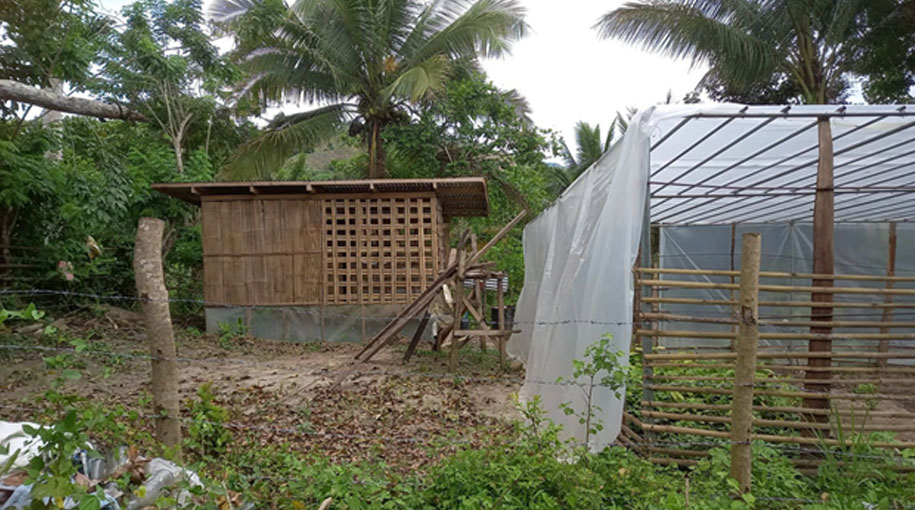
Nevertheless, while the agricultural system has been practiced by the Lambangian people since time immemorial, the need to revive and strengthen it has been deemed a necessity. With support from the Pawanka Fund and the facilitation of Tebtebba, the LPO commenced the initiative with the development of three demonstration farms in sitios Siyok, Kubangan Fafan, and Lutoy as well as a central nursery in sitio Benuan.[1]
“Lalong napalakas ang ugnayan ng bawat kasapi sa komunidad [pati na ang pagpapahalaga nila] sa kalikasan. Sa pamamagitan ng sulagad system ay mas maiaangat ang kabuhayan na may pagpapahalaga sa katutubong pamamaraan (Cooperation among the members of the community became even stronger through the sulagad system revitalization project. The initiative opened the possibility for an alternative source of livelihood that also gives importance to an indigenous practice),” shared Datuwata. “Ganunpaman, hindi pa rin sapat [ang inisyatibo] dahil ang mga demo farms ay pawang training grounds lamang upang matutunan ang makabagong pamamaraan na angkop at hindi makasisira sa kalikasan. Mas maigi sana kung matulungan ang bawat kasapi na makapagsimula [ng sulagad] sa sari-sariling sakahan (However, the said initiative is not enough as the developed demonstration farms are merely training grounds where community members could learn and share beneficial agricultural technological innovations that would, at the same time, help conserve nature. It would be much better if each community member could be provided support so that they could also start their own sulagad farms),” he emphasized.
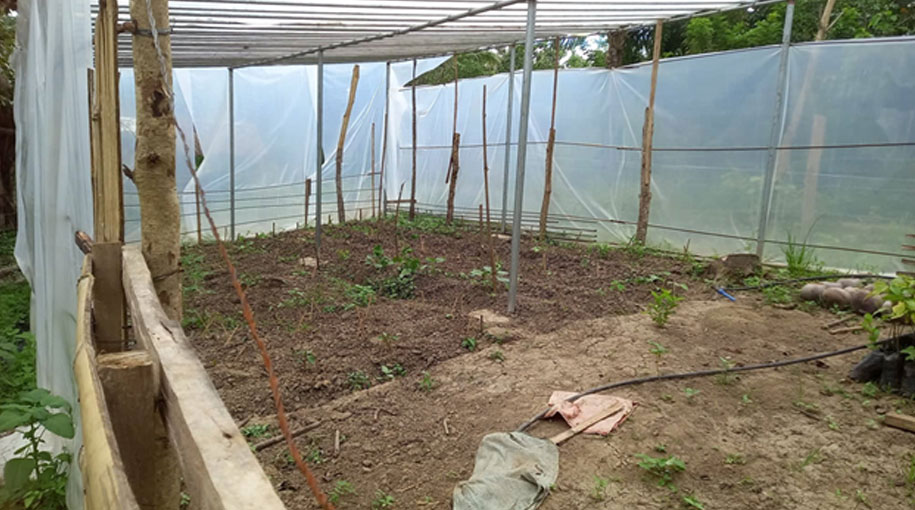
Unfortunately, most of the seedlings previously planted at the central nursery—cucumbers, bell peppers (Capsicum annuum), okra (ladies’ fingers), tomatoes, eggplants (aubergines), pechay (snow cabbages)—withered due to insufficient water supply. It can be recalled that the organization was able to divert some water to the said central nursery during Tebtebba’s previous visit on 19 June to 5 July 2022. Waterflow via the new waterpipe, however, stopped due to the fact that only 450 meters of it was new and the remaining 450 meters was composed of old pipes which, then, had parts that were already brittle and had small holes that were not readily discovered at first. Fortunately, the group was able to recalibrate and repair (patch-up) the said 900-meter water hose (which is connected to the main water source that is also 900 meters away).
Datuwata mentioned that they were able to plant a new batch of seedlings for the nursery—okra and eggplants—which, he hopes, would grow and prosper now that they already have a more stable and continuous water supply there.
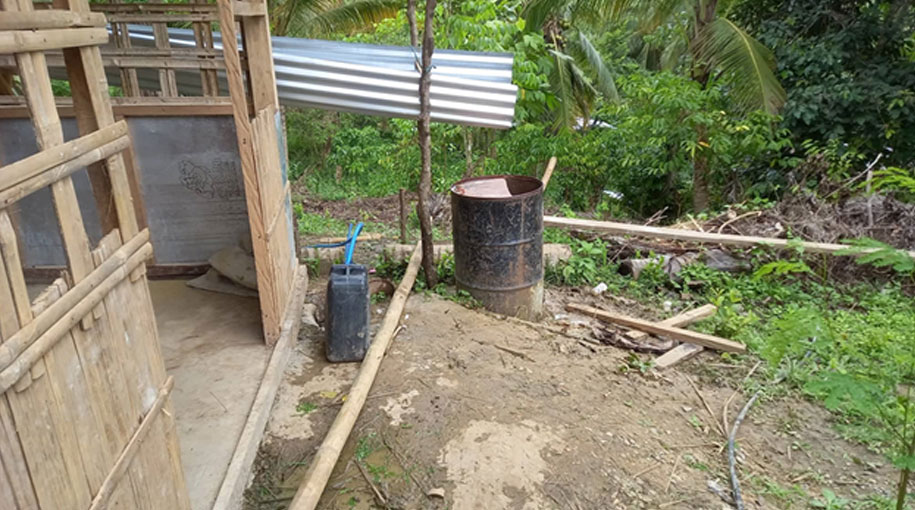
Nonetheless, the leader highlighted the necessity of sustaining the provision of guidance and assistance to the community in terms of revitalizing the sulagad system there. “Ang LPO ay patuloy pa rin sa kampanya. Sa tingin ko, hindi sapat ang pagbibigay ng kaalaman kung walang tulong para makapagsimula ang bawat pamilya. Napakahirap makawala sa kasalukuyang kalagayan dahil nakasanayan na ito (Skills trainings for the revitalization of the sulagad system is not enough if support for its the actual implementation per family is not given),” he explained. This is compounded by the fact that most of the community are forced to depend more on planting cash crops, like the genetically modified corn, because such crops can be harvested after a short period of waiting (60 to 100 days for corn)—a seemingly better option if one does not have to consider the huge expense necessary to cover the crop’s corresponding commercially produced fertilizers, pesticides, and seeds aside from its ill effects on the soil and the area’s ecosystem.
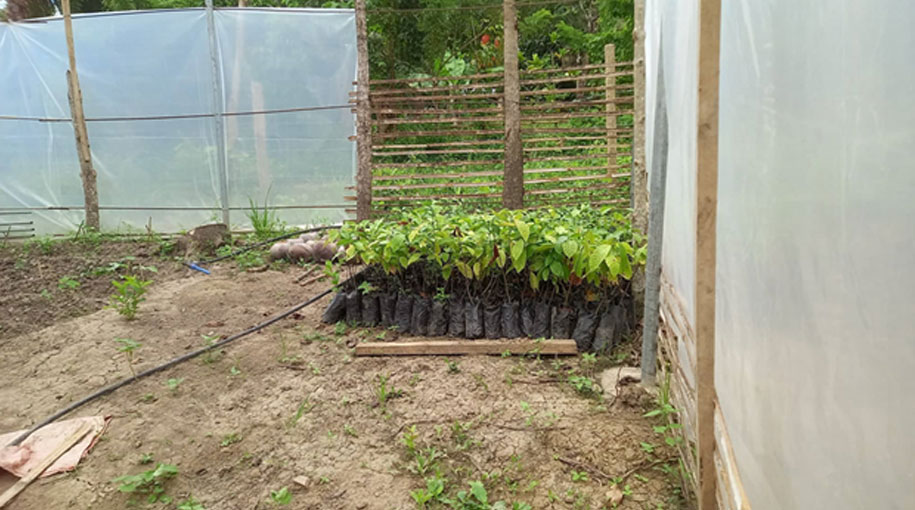
“Alam natin na kung patuloy ang ganitong pamumuhay, hindi malayo na marami ang mawawalan ng lupa, dahil sa patuloy na pagtaas ng presyo ng mga kagamitan sa pagsasaka at iba pang pangangailangan ng bawat pamilya (We know that if this kind of situation—preferential planting of hybrid corn—continues here in the community, it won’t be impossible that many would lose their lands due to the continuous increase of prices for these commercial farm supplies aside from the basic commodities needed by each family),” Datuwata warned. ###
-----
[1] See articles, Lambangian People Assess Their Sulagad System Revival Project and Lambangian People Revive Their Sulagad System, Push for Their Self-Determined Development


